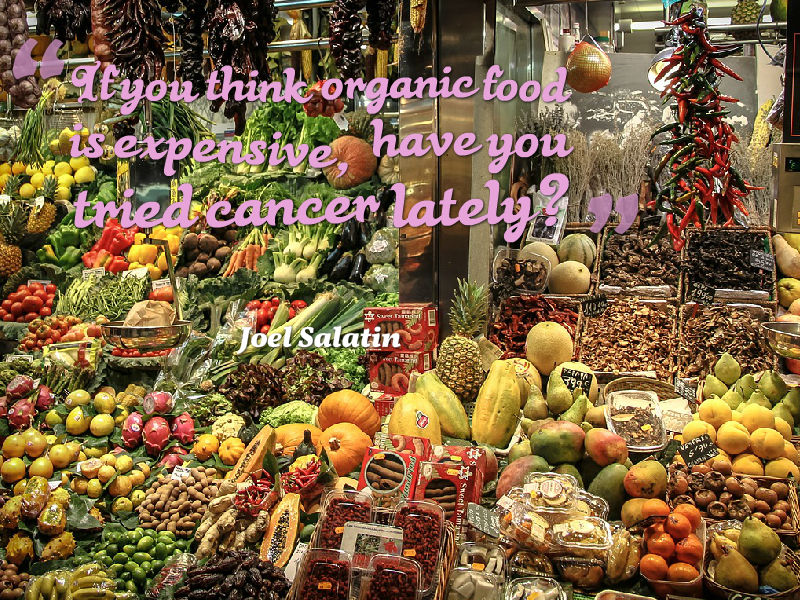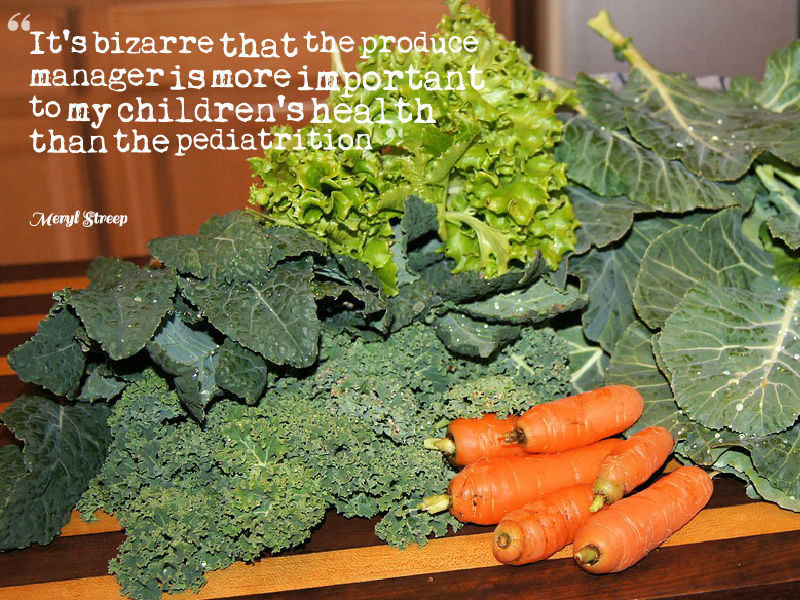There is just so much conflicting advice about what’s healthy and what’s not these days. What should actually be on a healthy shopping list?
1. Choose Water in Glass Bottles
If you buy bottled water, choose water in glass bottles. Unlike plastic, no chemicals leak out of glass, so the quality of the water put into the bottle is preserved.
The compound BPA was shown to be leaking into water from plastic bottles. It has been linked to a variety or serious health problems. Although this chemical has been phased out of a lot of bottles, other unpleasant compounds are still present in plastic that find their way into the water. How long is it going to be before other chemicals are also linked to health problems? Perhaps it’s a good idea to avoid plastic bottles altogether.
2. Choose Organic Produce
Produce that is not grown organically may be covered in chemical pesticides. Pesticides are designed to kill things, so it’s unlikely they are going to do the human body any good! Additionally, chemical fertilizers have been added to encourage growth. Again, these are completely unnatural chemicals that your body has difficulty coping with. This type of produce isn’t really compatible with a healthy shopping list.
Organic food contains far fewer, if any, pesticides. The other huge benefit is that organic food has much higher levels of vitamins, minerals and antioxidants. These smaller nutrients are important to keep your body healthy and protect you against cancer.
3. Choose Food That Creates a Rainbow of Colors
One of the keys to eating a healthy diet is to get a wide variety of smaller nutrients.
Natural food gets its colour from the nutrients it contains. So, if you look into your shopping basket and see an array of natural color, you can be fairly certain that you have a good variety.
4. Choose Fruit With a Lower Sugar Content
Regardless of where sugar comes from, too much of it isn’t good for you. It is a major factor that contributes to weight gain.
However, there are loads of benefits to eating fruit, and you can reap those benefits by choosing fruit with a lower sugar content. These include berries, raspberries, and strawberries. Berries are also particularly high in healthy antioxidants.
5. Choose Dark Green Vegetables
Dark green, leafy vegetables and salad leaves are densely packed with vitamins, minerals and antioxidants.
A mixed salad that includes things like spinach is going give you loads of nutrients that will maintain your health. The paler the vegetable, e.g., iceberg lettuce, the less quality nutrition there is.
6. Choose Genuine Free Range Eggs
When a chicken is allowed to forage for its own food, it ends up eating a natural diet for a chicken – vegetation, worms and insects. A naturally-fed chicken will produce fabulous quality eggs which are rich in nutrients and natural fats. The yolk will be a deep orange.
Unfortunately, most commercial eggs come from chickens that fed on grain, a by-product of corn. This isn’t a natural diet for a chicken, and as a result the eggs aren’t quite up to scratch. You can tell this by the pale yellow colour of the yolk.
Chose free range eggs and check their quality by the color of their yolks.
7. Choose Grass-Fed Meat
A cow’s natural diet is grass, not grain. Most farmed animals are fed grain to fatten them quickly. This isn’t a natural diet for a cow, so the meat of this cow won’t be as high-quality as that of a naturally-fed cow would be.
Exclusively grass-fed animals have a lower fat content in their bodies. Also, the fat that is present is quite rich in healthy fats that are good for the people eating them, such as omega 3. These healthy fats are not nearly as plentiful in grain-fed animals.
8. Choose Wild Fish
Farmed fish suffer from effects similar to those of farmed land animals. They don’t tend to be fed on their natural diet, and they can’t swim as much as they would in the wild. For these reasons, farmed fish have more fat and less protein in their bodies.
Wild fish eat a natural diet. Consequently, the protein and fats in their body are in perfect proportion.
9. Choose Good Sources of Omega 3 Fats
Omega 3 fats are extremely important for health. They play a role in keeping your heart healthy, your joints supple, and your immune system working well. Deficiency leads to a wide variety of health problems, ranging from dry skin to obesity. Yes, a lack of (the right) fat, can make you fat!
It’s thought that the most common deficiency in Western countries is omega 3. A really good source is wild oily fish like mackerel, sardines, and herring. Salmon and tuna are good sources as well. Grass-fed meat and quality eggs can also supplement one’s supply of omega 3. Additionally, flax seeds and chia seeds provide vegan options for omega 3.
10. Don’t Choose Refined and Processed Foods
The refining process removes many, if not all, of the health benefits of natural foods. For example, refined white flour has lost most of its fiber, protein, vitamins, and minerals.
Man-made and processed foods have few (if any) health benefits, regardless of what clever marketing might want you to believe. A prime example is margarine, which was created in a French chemist’s laboratory. The French emperor at the time wanted a cheap substitute to butter, which was needed to feed the army in addition to poorer people. Margarine was the answer.
You’ll make massive leaps with your health by avoiding food that is no longer what it started out as, or is the creation of a chemist.
Featured photo credit: Berry, Brie & Almond Salad/Amazing Almonds via flickr.com



















































